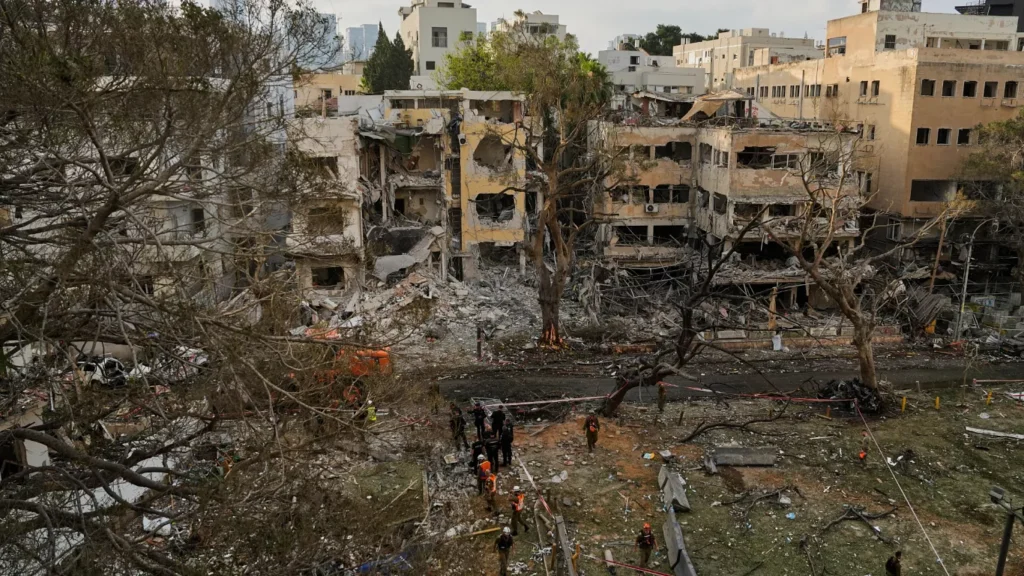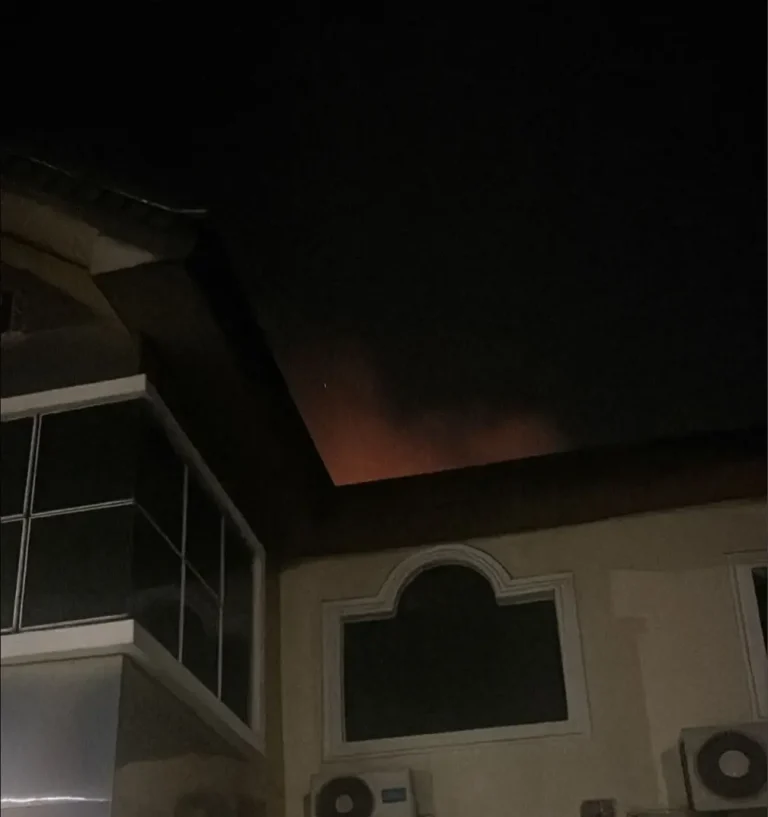
An Israeli strike hit Iran’s state broadcaster on Monday while the head of the U.N. nuclear watchdog indicated extensive damage to Iran’s biggest uranium enrichment plant and Iran called on the U.S. to force a ceasefire in the four-day-old aerial war.
Late on Monday, Israel said it hit Iran’s broadcasting authority, and footage showed a newsreader hurrying from her seat as a blast struck.
Iran’s state news agency also reported the strike.
Israel’s military said the building also served as a communications centre used by Iran’s armed forces.
Even as Iran called for the U.S. to force a ceasefire, it pierced Israeli air defences with a damaging volley of missile strikes and Israel persisted in its bombing campaign.
Sources told Reuters that Tehran had asked Oman, Qatar and Saudi Arabia to press U.S. President Donald Trump to use his influence on Israeli Prime Minister Benjamin Netanyahu to push for an immediate ceasefire.
In return, Iran would show flexibility in nuclear negotiations, said the two Iranian and three regional sources.
“If President Trump is genuine about diplomacy and interested in stopping this war, next steps are consequential,” Iran’s Foreign Minister Abbas Araqchi said on X.
“Israel must halt its aggression, and absent a total cessation of military aggression against us, our responses will continue. It takes one phone call from Washington to muzzle someone like Netanyahu.”
Asked if he would agree to talks should Trump want that, Netanyahu told reporters that Israel was committed to removing the threats of both nuclear weapons and ballistic missiles.
“If this can be achieved in another way – fine. But we gave it a 60-day chance,” Netanyahu said.
Speaking to Reuters, Trump said he had given the Iranians 60 days to come to an agreement to halt uranium enrichment and that the time had expired with no deal.
Talks between the United States and Iran, hosted by Oman, had been scheduled for Sunday but were scrapped, with Tehran saying it could not negotiate while under attack.
Iranian media said Iran was preparing for the “largest and most intense missile attack” yet against Israel, including against military and intelligence targets.
Israel launched its air war with a surprise attack that killed nearly the entire top echelon of Iran’s military commanders and its leading nuclear scientists.
It says it now has control of Iranian airspace and intends to escalate the campaign in coming days.
Israel said it hit Iranian F-14 fighter planes at Tehran airport on Monday, and its airstrikes have also put at least two of Iran’s three operating uranium enrichment plants out of action.
Rafael Grossi, head of the International Atomic Energy Agency, told the BBC on Monday it was very likely all the roughly 15,000 centrifuges operating at Iran’s biggest uranium enrichment plant at Natanz were badly damaged or destroyed because of a power cut caused by an Israeli strike.


